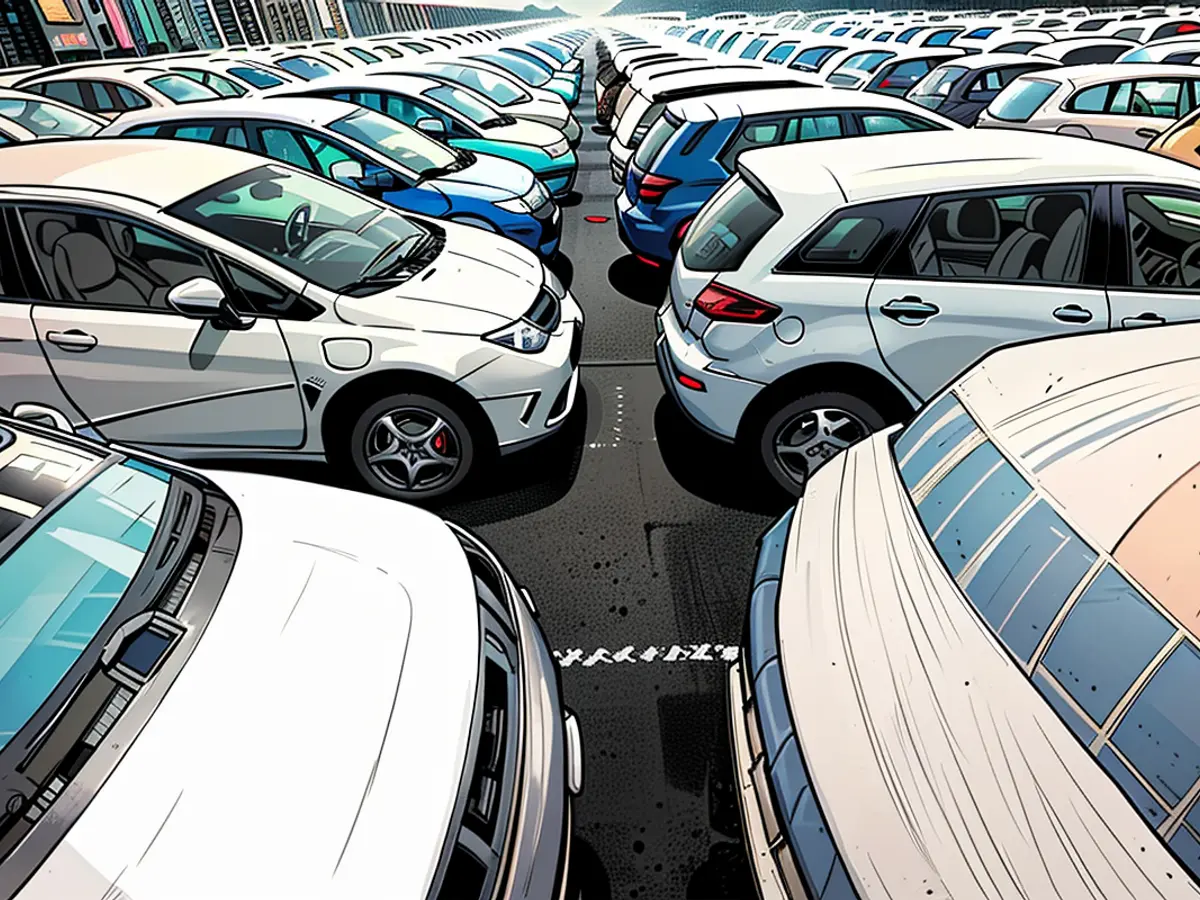China's electric car boom is making German manufacturers sweat
A Development in China Hurts German Car Manufacturers: The Sales of E-Cars and Hybrids are Skyrocketing, Demand for Combustion Engines is Declining. This Benefits Chinese Providers Particularly. Volkswagen, Mercedes, and Co. are Seriously Concerned.
The combustion engine is rapidly losing significance in China. In 2020, 94% of all new cars were powered by conventional fuels such as gasoline or diesel. In the first half of 2024, this figure had fallen to just 59%. This is evidenced by registration figures from the automotive data specialist Marklines, which were obtained by the "Handelsblatt".
In the first six months of this year, sales of combustion engines fell by 12% or 775,000 units. Meanwhile, sales of electric and partially electric vehicles increased by 38% or 1.1 million units. In July, according to the Chinese Automobile Association (CPCA), more E-cars and plug-in hybrids were delivered than pure diesel and gasoline cars for the first time.
This dramatic shift is causing significant declines in sales, revenue, and profits for Western manufacturers such as Volkswagen, Mercedes-Benz, GM, and Honda. "We are clearly seeing a displacement of conventional drive systems," explained Jan Burgard, head of the automotive consultancy Berylls by Alix Partners. With the parallel strong increase in the share of electric cars in China, "the dominance of domestic providers is growing." The main reason appears to be the technological superiority of Chinese providers such as BYD, Geely, or Li Auto in electric drives and digital cockpits compared to their Western competitors. As a result, the combined market share of Chinese providers has increased from 33% to 52% since 2020. German corporations have lost a total of almost six percentage points, and Japanese corporations have lost nine, according to the "Handelsblatt".
Combustion Engine Sales "Beautify" the Balance Sheet for a Long Time
The German automotive industry has lacked competitive electric cars in China in recent years. This could be easily covered up by the high sales figures of vehicles with combustion engines. However, with the now collapsing gasoline business, the situation is becoming critical, especially for mass producers like Volkswagen.
Europe's largest automaker is set to earn around three billion euros less this year alone with its two local joint venture companies, SAIC and FAW, compared to 2018. At that time, the joint ventures still generated an operating profit of over 4.6 billion euros. In the first half of 2024, it was not even one billion euros - and that's 350 million euros less than the previous year. Sales have simply collapsed. Since 2020, the core brand VW has lost a sales volume of more than 430,000 units. And it's still going downhill. In the first half of the year, deliveries fell by a further four percent to 931,000 units. Across all sub-brands, the market share of the Volkswagen Group in China has fallen from 19% to 14% in just over four years.
In Germany, however, combustion engines are experiencing a revival. There are even discussions about postponing the ban on new registrations of combustion engines in the EU, which is set to come into effect in 2035. In China, however, the reality is quite different. This is also due to tax incentives for electric cars. In many megacities, there is a limited number of license plates. The waiting times for electric cars are shorter than for combustion engines, giving them a clear advantage. Since April, there has also been a state subsidy for electric cars, which is set to be doubled to 20,000 yuan (around 2,550 euros) soon, according to the "Handelsblatt".
Even another German flagship, Mercedes-Benz, is now struggling in China. As the company primarily operates in the premium and luxury segments, its business had been doing quite well so far. However, in the first half of the year, there was a 10% drop - 352,000 vehicles were sold, according to the Handelsblatt. The pro-rata result from the joint venture with the Chinese state-owned company BAIC even shrank by 15% to 645 million euros compared to the previous year. Particularly concerning is the number of imported sedans and SUVs, which decreased by nearly a quarter, from around 80,000 to 62,000 units.
The struggle for Mercedes-Benz in China's premium market is likely to continue, as the shift towards electric vehicles is expected to intensify. Chinese providers like BYD and Geely, with their technological advances, are expected to further increase their market share.
The declining demand for combustion engines in China is not just affecting German manufacturers like Volkswagen and Mercedes-Benz, but also Japanese corporations such as Honda, as they struggle to compete with the technological superiority of Chinese providers.








